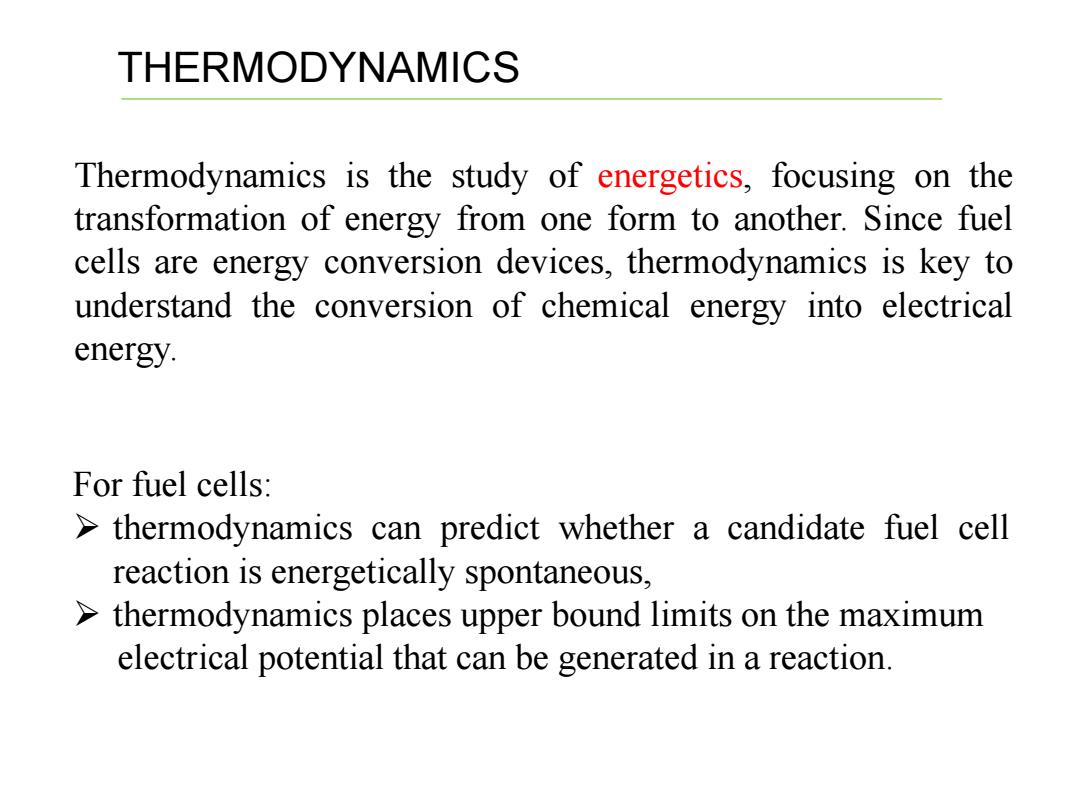
THERMODYNAMICS Thermodynamics is the study of energetics,focusing on the transformation of energy from one form to another.Since fuel cells are energy conversion devices,thermodynamics is key to understand the conversion of chemical energy into electrical energy. For fuel cells: >thermodynamics can predict whether a candidate fuel cell reaction is energetically spontaneous, >thermodynamics places upper bound limits on the maximum electrical potential that can be generated in a reaction
THERMODYNAMICS Thermodynamics is the study of energetics, focusing on the transformation of energy from one form to another. Since fuel cells are energy conversion devices, thermodynamics is key to understand the conversion of chemical energy into electrical energy. For fuel cells: thermodynamics can predict whether a candidate fuel cell reaction is energetically spontaneous, thermodynamics places upper bound limits on the maximum electrical potential that can be generated in a reaction
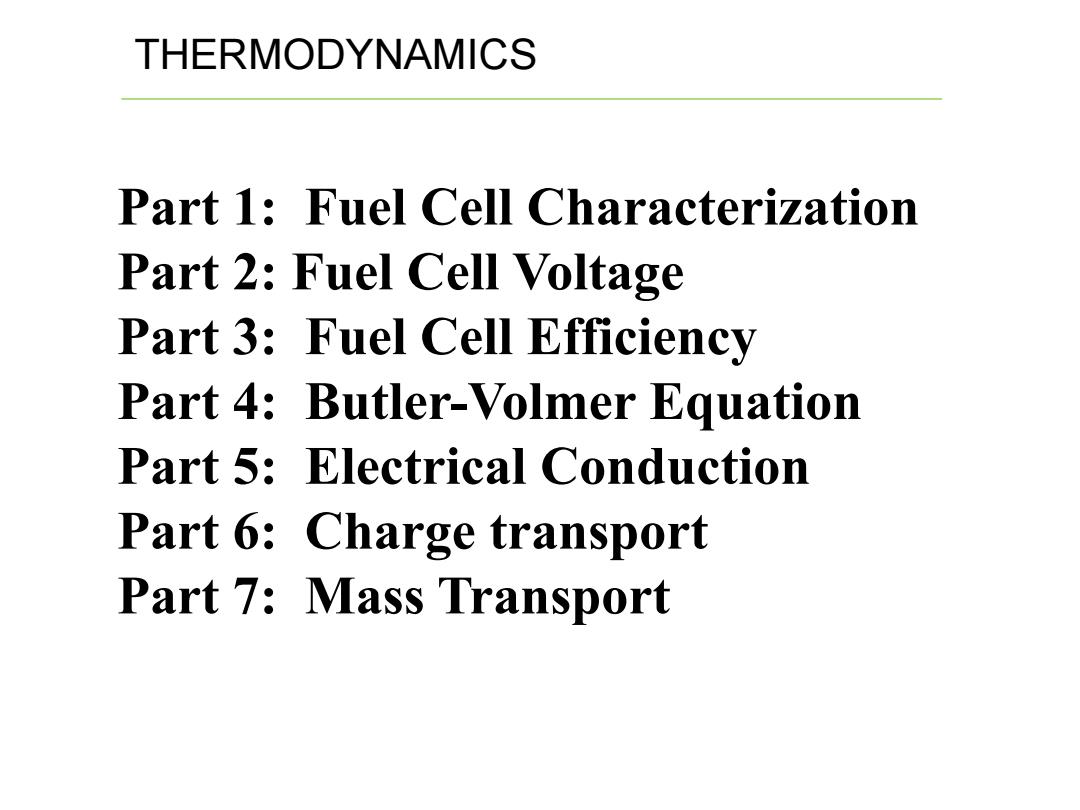
THERMODYNAMICS Part 1:Fuel Cell Characterization Part 2:Fuel Cell Voltage Part 3:Fuel Cell Efficiency Part 4:Butler-Volmer Equation Part 5:Electrical Conduction Part 6:Charge transport Part 7:Mass Transport
Part 1: Fuel Cell Characterization Part 2: Fuel Cell Voltage Part 3: Fuel Cell Efficiency Part 4: Butler-Volmer Equation Part 5: Electrical Conduction Part 6: Charge transport Part 7: Mass Transport THERMODYNAMICS
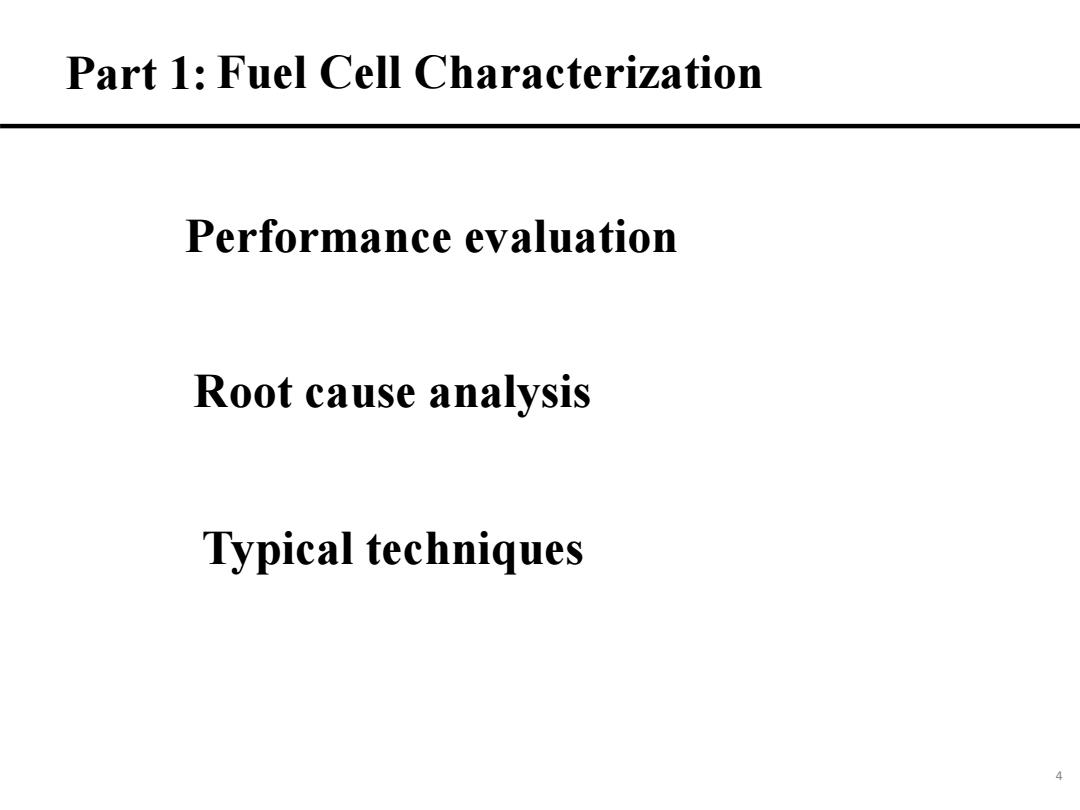
Part 1:Fuel Cell Characterization Performance evaluation Root cause analysis Typical techniques
4 Fuel Cell Characterization Typical techniques Performance evaluation Root cause analysis Part 1:
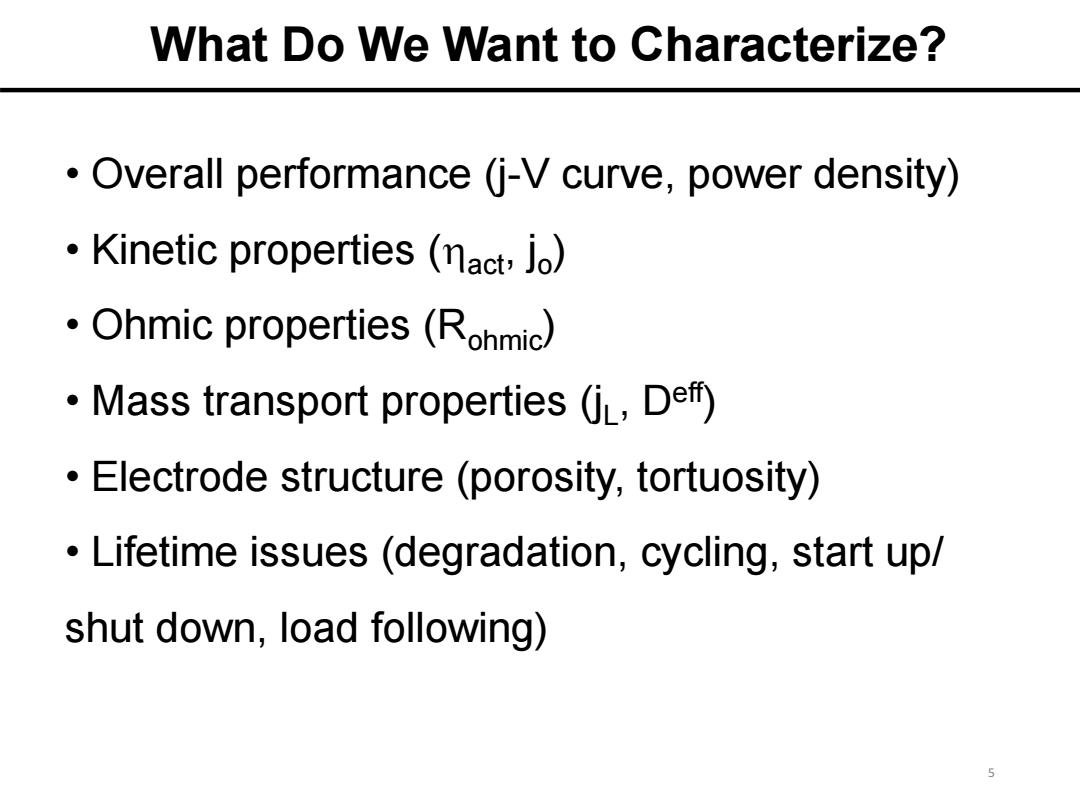
What Do We Want to Characterize? Overall performance (j-V curve,power density) Kinetic properties (nact,jo) Ohmic properties (Rohmic) Mass transport properties (jL,Def) Electrode structure (porosity,tortuosity) Lifetime issues (degradation,cycling,start up/ shut down,load following) 5
5 What Do We Want to Characterize? • Overall performance (j-V curve, power density) • Kinetic properties (hact, jo ) • Ohmic properties (Rohmic) • Mass transport properties (jL , Deff) • Electrode structure (porosity, tortuosity) • Lifetime issues (degradation, cycling, start up/ shut down, load following)
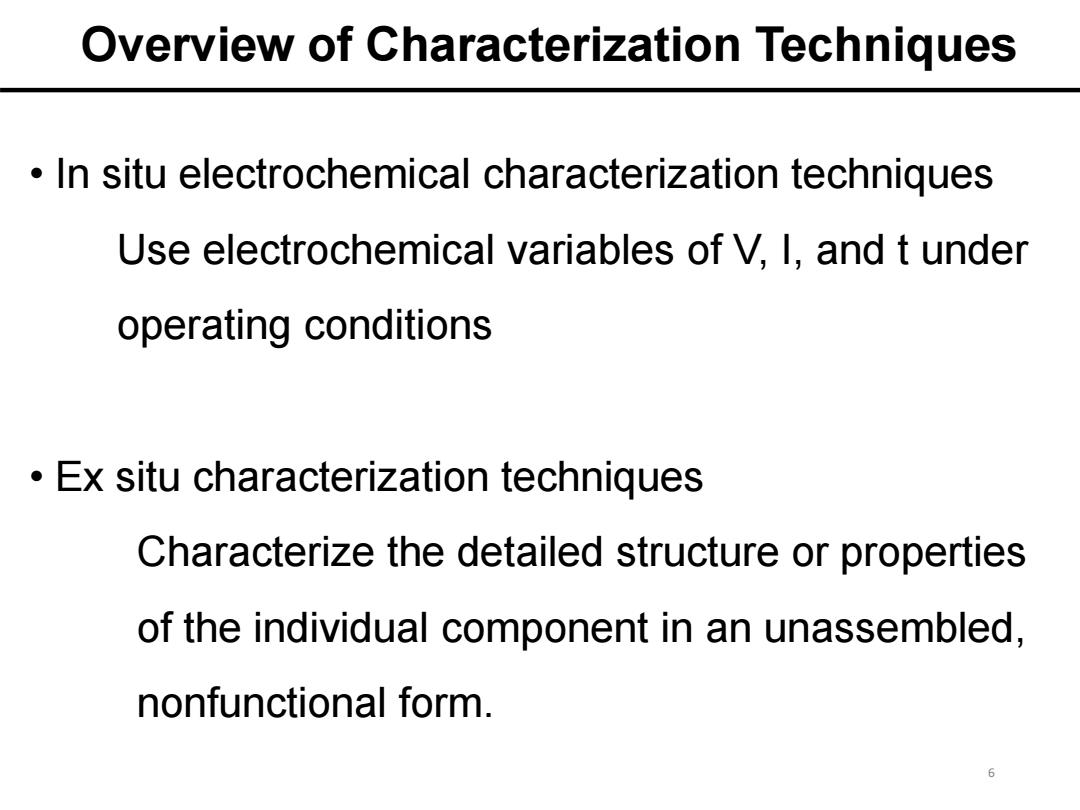
Overview of Characterization Techniques In situ electrochemical characterization techniques Use electrochemical variables of V.I,and t under operating conditions Ex situ characterization techniques Characterize the detailed structure or properties of the individual component in an unassembled, nonfunctional form. 6
6 Overview of Characterization Techniques • In situ electrochemical characterization techniques Use electrochemical variables of V, I, and t under operating conditions • Ex situ characterization techniques Characterize the detailed structure or properties of the individual component in an unassembled, nonfunctional form